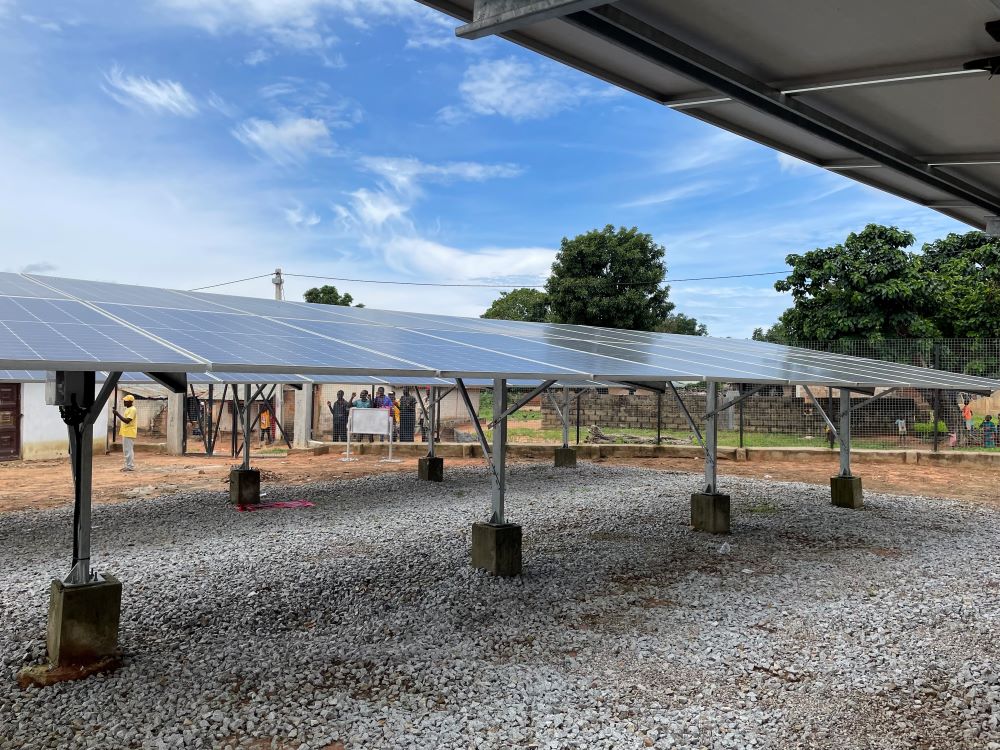Simon Stiell tells investors in NYC that rich countries are benefiting most from clean energy growth while poorer nations are deprived of finance for cheaper renewables
Some economies are starting to see dividends from the hundreds of billions of dollars flowing each year into clean energy around the world – but progress is uneven, with richer countries reaping most of the benefits and poorer ones held back, the United Nations’ climate chief said on Tuesday.
Simon Stiell told investors at an event in New York that the efforts of many developing countries to adopt more renewables like solar and wind power “are hamstrung by sky-high costs of capital… or mired in spiralling debt crises”.
Because the “mega-trend” in clean energy is occurring unevenly, most investors are missing out on “gigantic, unrealised opportunities” outside of wealthy countries, he added, warning that this also poses a major threat to global action to curb climate change and avoid its worst impacts.
“I’ll be blunt: if more developing economies don’t see more of this growing deluge of climate investment, we will quickly entrench a dangerous two-speed global transition,” Stiell said.
UN climate chief calls for “exponential changes” to boost investment in Africa
Such an imbalance is both “unacceptable” and “self-defeating” for all economies, he emphasised. It would make halving global emissions by 2030 to keep warming in check “near impossible”, he explained, as well as causing havoc in international supply chains as extreme weather bites.
The disruptions experienced by businesses during the COVID19 pandemic “will seem like a minor hiccup compared to what an unchecked climate crisis will inflict” in an interdependent world economy, Stiell warned. “If a two-speed global transition sets in, ultimately everyone loses, and loses badly,” he added.
IEA weighs in
A report issued on Tuesday by the International Energy Agency (IEA), showing how to meet the energy transition goals agreed at last year’s COP28 climate summit, noted that advanced economies and China account for more than four out of every five dollars invested in clean energy since the Paris Agreement was signed in late 2015.
The IEA called for stronger and more stable policies to attract private investment in clean energy in other regions, together with larger, better-targeted international support spurred partly by a new climate finance goal due to be agreed at COP29 this November.
The agency also pointed out that, although governments are worried about how to make the energy transition socially acceptable, globally they are still spending nine times more making fossil fuels cheaper than on subsidising clean energy for consumers.
COP29 aims to boost battery storage and grids for renewables, as pledges proliferate
The report said that the COP28 goal of tripling global renewable energy capacity by 2030 is within reach – but meeting it will not automatically mean that more renewable electricity will clean up power systems, lower costs for consumers and slash fossil fuel use.
Achieving those aims will require complementary efforts to enable clean electrification – including building and modernising 25 million kilometres of electricity grids by 2030 and adding 1,500 gigawatts (GW) of energy storage capacity by that year, largely with batteries.
Fast-tracking a green future
With businesses and financiers gathered in New York for the annual Climate Week NYC, alongside leaders attending the United Nations General Assembly (UNGA), international agencies and green groups emphasised the need for concerted action by the public and private sectors to put internationally agreed energy targets into practice.
Fatih Birol, the IEA’s executive director, said the goals set at COP28 could put the global energy sector “on a fast track towards a more secure, affordable and sustainable future”. “To ensure the world doesn’t miss this huge opportunity, the focus must shift rapidly to implementation,” he added.
Other organisations also outlined key ways to make this happen. Mission 2025 – a coalition of businesses, sub-national governments and researchers, among others – appealed to governments to set “investment-positive policies” that can provide confidence to mobilise large-scale finance for the energy transition.
Using data from the Energy Transitions Commission, an international think-tank, Mission 2025 identified three such policies that have already w
Read More

